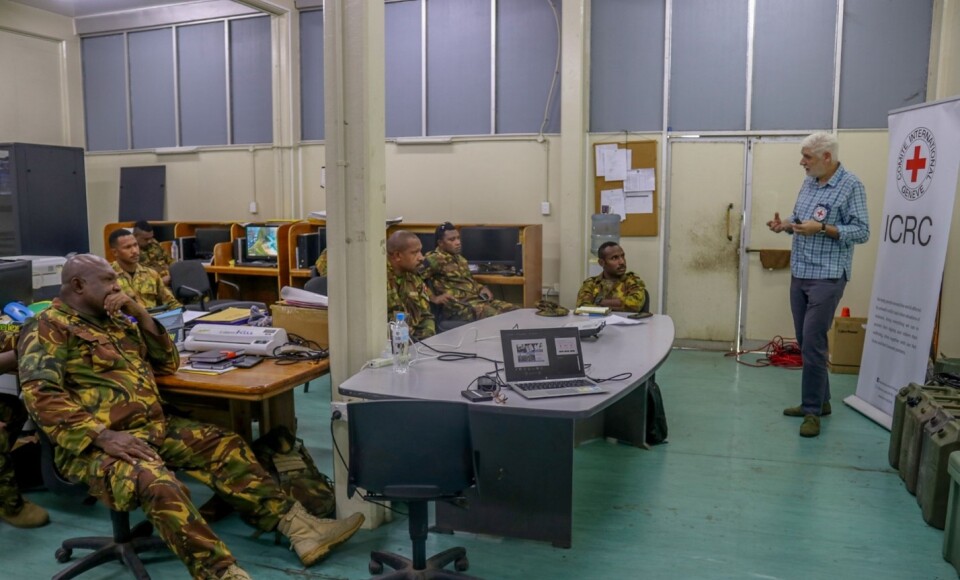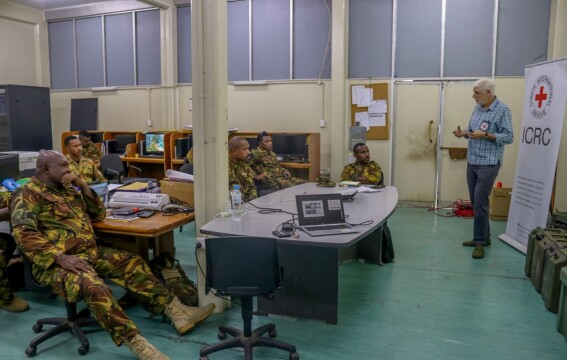Conflict is never inevitable – a conversation with ICRC’s Snowy Lintern
8 April 2025


As a boy growing up in England’s southwest, Snowy Lintern wanted to be a sailor. “I ran away to sea as soon as I could.”
He joined the Royal Navy in 1987 and stayed for 25 years, during which he served in Iraq and deployed to Afghanistan. He’s been an armed forces delegate with International Committee of the Red Cross (ICRC) since 2018 and is based in Tokyo, where he covers Asia-Pacific.
“My military experience in Iraq in many ways, I think, shaped my future.”
As the guardians of the Geneva Conventions, ICRC brings international humanitarian law to the forefront in their work in conflict zones. The Conventions, as they exist today, were born from the rubble of the Second World War. States came together in 1949 to say, “we can't allow our children to do that. There must be a sense of humanity, even in conflict.”
In his role as an armed forces delegate, Snowy meets with militaries from countries across Asia-Pacific to take the Geneva Conventions off the page and into practice through meetings, workshops, and humanitarian law training. ICRC don’t train militaries how to fight, instead they bring the concerns of people not fighting to the forefront. How can these people be protected? How can risks be minimised?
Snowy talks about the ‘dilemma triangle’, where militaries are protecting their members, achieving their objectives, and protecting people who aren’t part of the fight. “From my personal experience, frankly, the shock of going into conflict for the first time – it's not nothing. You will lean back on your training.”
“What you're talking about with militaries is practical – this is not a theoretical discussion. There will be different outcomes depending on how they operate, and those outcomes can be dramatic.”
ICRC’s work doesn’t end with the legal obligations of militaries to uphold the law. Roughly 120 million people around the world are living under the control of non-state armed groups. ICRC has confidential dialogue with around 400 of these groups worldwide. “If you carry a weapon, and you control territory and people, then those people will have humanitarian needs.”
This dialogue is essential in ensuring that ICRC has access to provide humanitarian aid, but also that these groups follow humanitarian law. ICRC take the time to learn about how groups operate and the code they follow. “If we can understand that, then we can have a culturally appropriate discussion, reminding them of their obligations, because of course the obligations are universal.”
Though ICRC is the guardian of the Conventions, “these laws belong to all of us, really”. No matter who you are, where you live, or where you come from, we’re all protected by humanitarian law and have the power to uphold it.
“Our position is very clear – conflict is not inevitable. We see the realities of conflict every day. If you can avoid conflict, that's a good thing to do."
Image caption: Snowy speaking to the Papua New Guinea Defence Force in Port Moresby, March 2025.
More information
- In times of disasters, conflict, and other emergencies, we respond to the needs of vulnerable people around the world.
What we do overseas - If you want to get involved in our work, join us! We have volunteer roles to suit everyone.
Find a volunteer role - Donate to support our work, including sending people like Peter overseas to uphold humanity.
Donate to where the need is greatest
